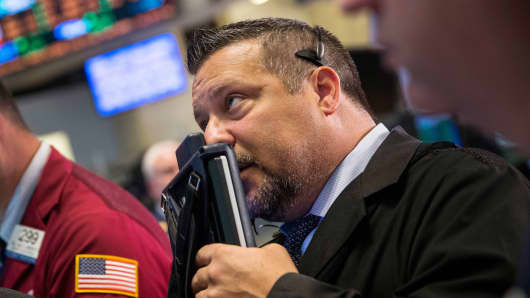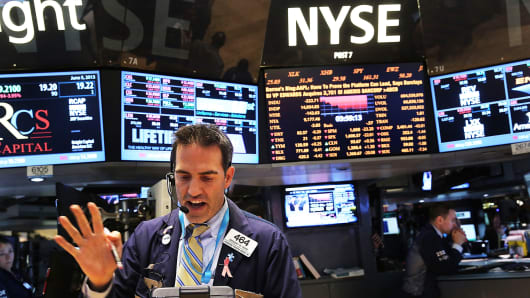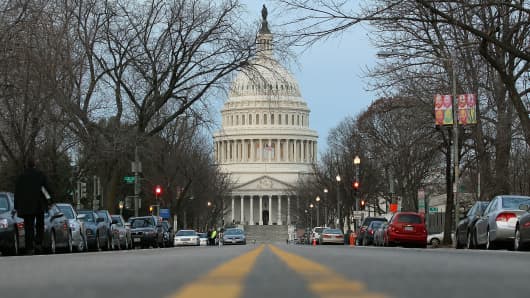Recapping the day's news and newsmakers through the lens of CNBC.
Good macro data, bad market
Notes:
Jobless claims hit a six-year low last month, and the latest inflation reading was benign. But that just wasn't enough to offset some disappointing earnings and economic reports, and stocks plunged Thursday. It just seems like a cloud of uncertainty has investors looking for excuses to sell.
Initial claims for state unemployment benefits dropped last week to the lowest level since October 2007, down 15,000 to a seasonally adjusted 320,000. Analysts had expected 335,000. In an especially good sign, the four-week moving average fell 4,000 to 332,000, the lowest level since November 2007.
Meanwhile, the consumer price index edged up just 0.2 percent in July, versus 0.5 percent in June. That brings inflation to 2 percent for the past 12 months, smack on the Federal Reserve's target.
Among investors' concerns were a disappointing report from Wal-Mart and a warning from Cisco Systems, which said it would cut 4,000 jobs because of weak demand.
Tuning in on investor's jitters, CNBC's Jim Cramer worries about tightwad consumers.
Quotes:
"Macro is great, but when you have to go deal with companies, it's bad. ... There's a giant reset going on. It's just playing out right in front of us."—CNBC's Jim Cramer





